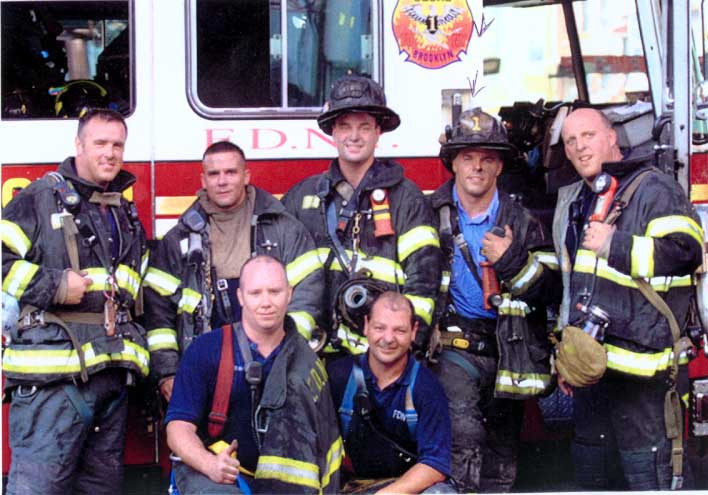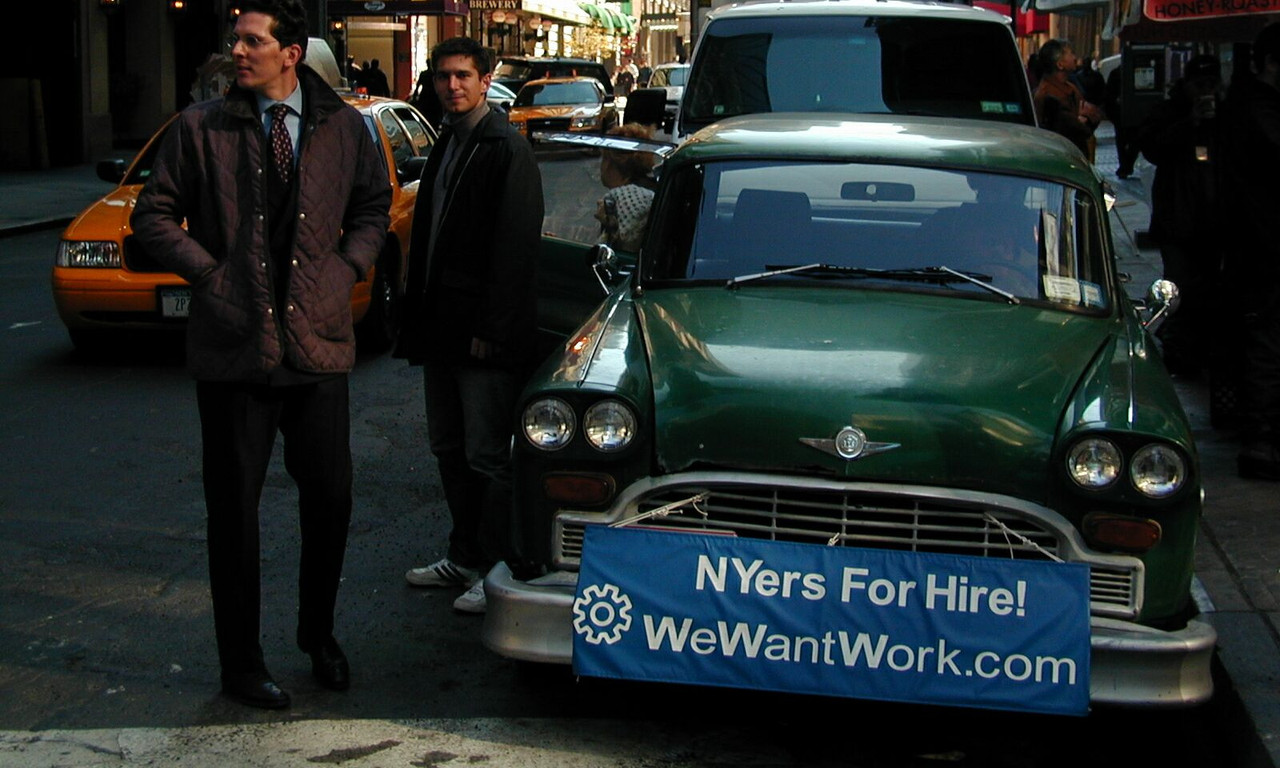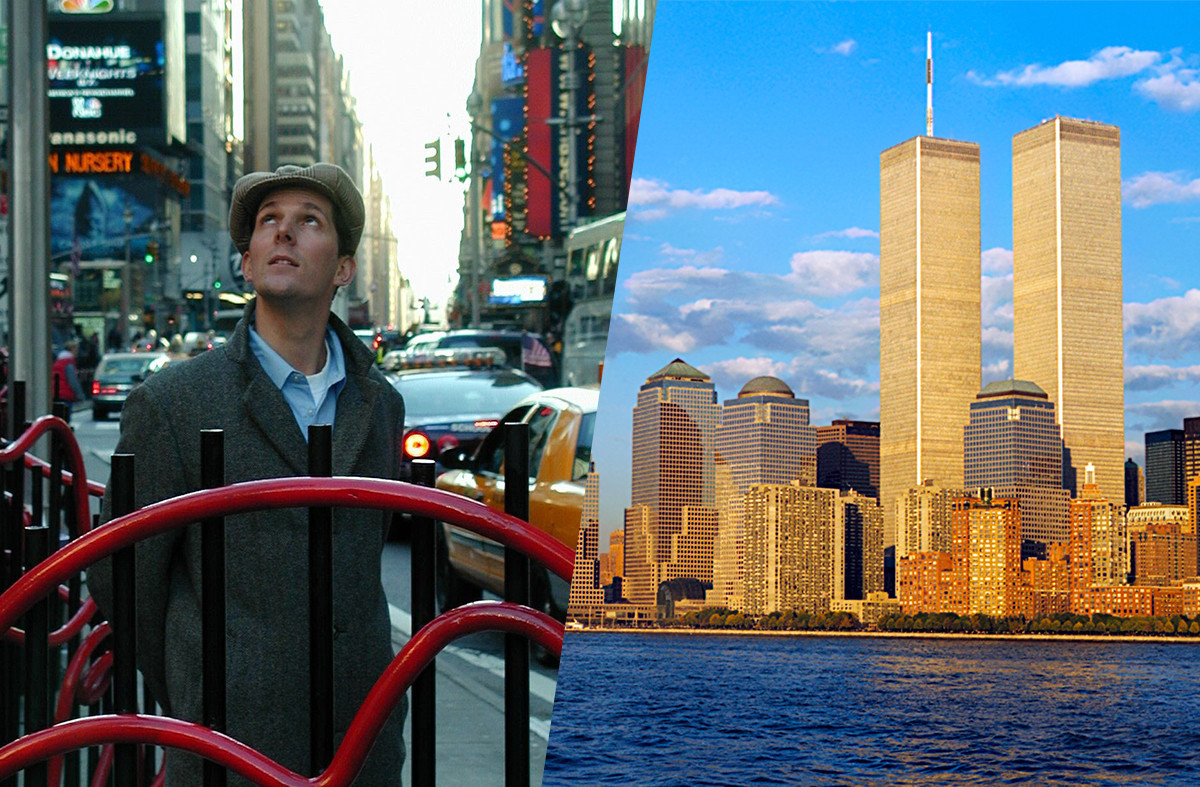Like many other people living in New York, Marc de Bourcy remembers the morning of 11 September 2001. “The weather was beautiful, very sunny and a soft blue autumn sky.” At the time, he was working in the finance industry in Midtown Manhattan, but living in the Park Slope neighbourhood of Brooklyn.
"I had an early start to my day, because I had a dentist appointment that was right next to the Twin Towers. As I got off at my appointment, just before 9 o'clock, I noticed that there were just a few people in the streets, whereas the downtown financial district was usually full of people. People were being evacuated elsewhere, which I obviously didn't know yet. It was at Liberty Place that I saw the flames at the top of the first tower and thousands of pieces of paper dancing in the sky, and people holding hands and jumping together into the void, deciding their own fate instead of waiting for worse," De Bourcy said in an interview.
I threw myself under a truck, pulled my jumper over my head, closed my eyes and held my breath.
Then, the ground started to shake and, all of a sudden, "there were a lot of firemen around me. One of them shouted at me: ‘Run if you want to live!’ I instinctively ran into an alleyway, those streets where you find small shops, small restaurants and snack bars. A grey mass came at full speed and the windows of the buildings exploded around me. I saw people being torn apart by debris. I threw myself under a truck, pulled my jumper over my head, closed my eyes and held my breath. I acted mechanically and instinctively, while my mind was very anxious and agitated. But, also, for the first time in my life, during that moment, I felt like my body, which was remaining calm and composed, was saying to my head: 'Don't worry, it's going to be okay, we're going to get through this.'"
When he couldn’t hold his breath anymore and had trouble breathing, he got up, seeing little of where he was going. "I must have bumped into a glass door and someone saw me lying on the floor, pulled me into some kind of small grocery shop. There were people inside who helped me breathe. And everyone was trying to get their loved ones on the phone, including me, but the networks were down.” He remembers wanting to take a Coke from a fridge because he had swallowed a lot of smoke and dust. “The shop owner said to me: ‘That's a dollar.’ I laughed my head off and gave him the dusty dollar note. That attitude was also so New York in itself, even in those extreme circumstances of collective trauma that we were all experiencing... 'No such thing as a free lunch in New York'."
Contrary to the advice of others, he felt strongly that he had to get out onto the street and walked northeast towards the Brooklyn Bridge. In an apocalyptic atmosphere, with the sun shining through the smoke, he saw "people on the ground, people dead and injured". He was picked up by paramedics, taken to a clinic in Brooklyn--his lungs were affected by smoke and debris dust, and iron filings and small pieces of glass, which would later be surgically removed, had got into his eyes--and then asked to go home. "I left my clothes outside the door and waited. My girlfriend arrived. I saw the images of the attacks on TV, so I realised at that moment that it was an attack and not an accident and that the second tower had also fallen--it traumatised me." He would later learn that the shop where he had taken refuge and was anxious to leave had been crushed by debris from the second tower.
Living in the moment
Very close to the two towers, Marc de Bourcy was lucky to hide under a lorry, then to find refuge in a shop, before going out into the street and meeting rescue teams, without suffering any serious injuries. A stroke of luck, certainly. But also events that would strongly impact his life. "Hyperactive-impulsive, sleep disorders... It became clear very quickly that I was suffering from a post-traumatic syndrome. My girlfriend took me to a professional for help. For a long time I had to avoid watching TV and get as much sleep as I needed. And I didn't go back to Liberty Place or even the WTC for several years."
But this tragedy “will also allow me to find some humanity in myself, some calm. It changed a lot of things in my life. It's not easy to define really. I can sum it up by saying that it gave me more contact with gentleness.” The sequence of events "led me to understand that there are greater forces in our being, like appreciation, compassion, the oneness of our human family. It brought me a breath of gratitude for life, a full awareness of being and living in the moment."
Supporting families of firefighters
For Marc de Bourcy, reaching out became vital. So he rallied in support of the FDNY Brooklyn Fire Squad #1, who lost 10 of their members in the attacks.

The Brooklyn FDNY Squad n°1 received a nice support from Luxembourg. (Photo: Marc de Bourcy)
“They were my neighbours, faces I would probably pass on the streets before, people who also looked after our safety. We then created a fund for the children of these firefighters, to give them access to education later on. An appeal was launched in Luxembourg to set it up, and it was well received. It was the fire brigade that then managed it directly.”

With friends, he launched the "We Want Work" initiative. (Photo: Marc de Bourcy)
In 2002, Marc de Bourcy and friends launched "We Want Work”, an initiative for young professionals who had lost their jobs as a result of the events of 11 September. It raised awareness among companies in New York to hire.
In my opinion, greatness is defined by the will to stand on one's own feet... This was the case in New York.
But he left the city in early 2003--"a city on its knees, people on their knees”--to move to Berlin-Mitte to work with artists. He returned to New York from 2004 to 2008. "There was a tribute in light with projections of the Twin Towers in the sky. It was a kind of call for vitality. The desire to live was again stronger than the aggression suffered. In my opinion, greatness is defined by the will to stand on one's own feet. This was the case in New York. I returned in 2004 to a place that was familiar, but that had also changed. There was more warmth, solidarity and humanity. Before 2001, professional competition and material exuberance were everywhere, even at the pool or in yoga class. Everyone was self-centred, career-centred, and it was killing people's souls somewhere. This was less the case afterwards. The New York way of life was able to pick up little by little. All of this has restored that energy that is so unique--the ‘Zeitgeist’--of this city, which means that you adore or reject it, but that there are no half measures.”
Free from want, free from fear
Marc de Bourcy's testimony is rare and precious. Every year, he cannot escape the media, the images of the burning towers, and of course the requests for interviews. "I only did it once, when I went back to the site with Guy Weber and Luc Rollmann of RTL in October 2001. Otherwise, I never testified. Yes, I experienced an extreme moment. But this event is a private life companion that is part of me.”
Inspired by Vietnamese Buddhist philosopher Thích Nhất Hạnh, "I think the leitmotif is compassion, resilience and the spirit of love; that's what I learned from 9/11 and these are not things that are taken for granted. The strength of our democratic systems is to seek that balance between protecting our security and protecting the maintenance of our freedoms, the right balance is a challenge for any modern democracy. That we can live together in peace--free from want, free from fear, with freedom for all preserved in dignity--is one of Europe's great achievements. But we must be careful, the European project is not a being, but a becoming. That is my message.”
This story was first published in French on . It has been translated and edited for Delano.


